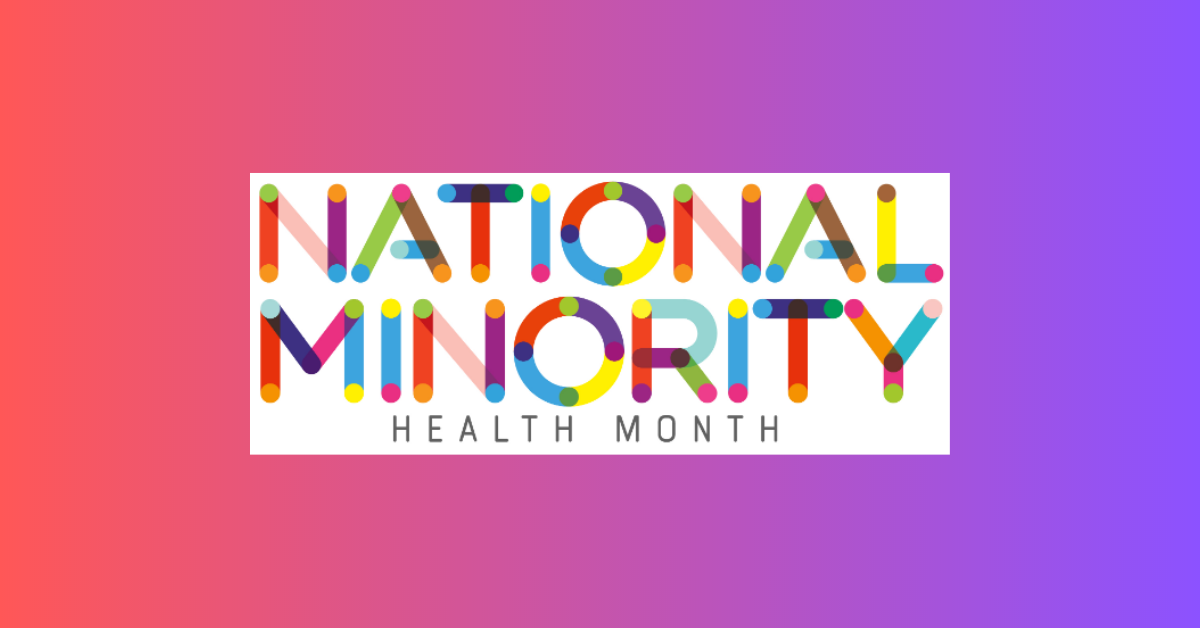
Underserved communities, including racial and ethnic minority groups, are at increased risk of getting sick, having more severe illness, and dying from COVID-19, according to CDC data. Our lack of health equity has serious impacts for these communities.
Everyone deserves health equity, but what is it? According to the CDC, health equity is “the state in which everyone has a fair and just opportunity to attain their highest level of health.”
Achieving health equity requires addressing historical and contemporary injustices, as well as overcoming economic, social, and other obstacles to health and health care. National Minority Health Month, sponsored by the U.S. Department of Health and Human Services (HHS) Office of Minority Health (OMH) draws attention to these disparities in health and promotes education and implementation of programs to promote healthfulness in these communities.
Every April, the United States celebrates National Minority Health Month, which was formally recognized as “National Minority Health and Health Disparities Month” in October 2002 when Congress adopted resolution H.Con.Res.388. This month originated with Booker T. Washington’s 1915 establishment of National Negro Health Week.
Every year, the NIH’s National Institute on Minority Health and Health Disparities designates a theme for National Minority Health Month. This year’s theme is Better Health Through Better Understanding.
Only 14 percent of the U.S. population has proficient health literacy, and almost 20 percent of people in the U.S. speak a language other than English at home. This year’s focus hopes to improve health outcomes for racial and ethnic minorities and American Indian/Alaska Native (AI/AN) communities.
The OMH hopes to increase health literacy patients of racial and ethnic minorities and improve access to health care information for patients with limited English proficiency, while also encouraging health care providers to give culturally competent care. The OMH believes that providing patients with culturally and linguistically appropriate information empowers them to create healthier outcomes for themselves and their communities. You can find resources and support to further these goals at National Minority Health Month 2023.